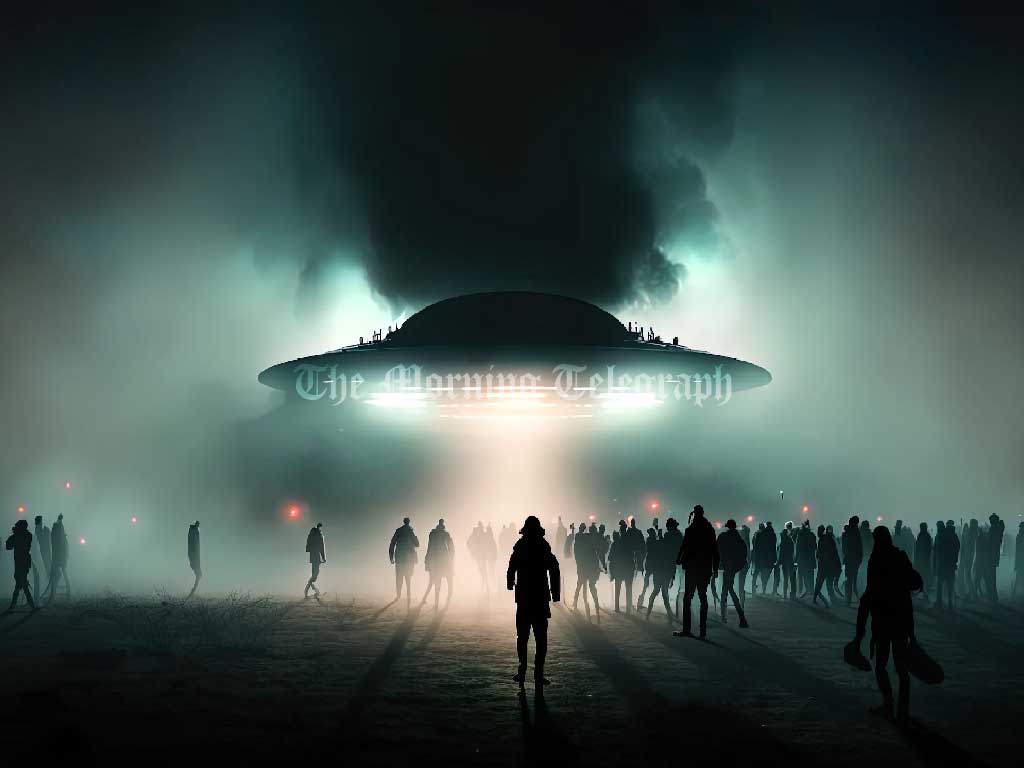
In a groundbreaking report by the BBC, Lord Martin Rees, the UK’s Astronomer Royal, has raised a provocative and thought-provoking idea about the nature of extraterrestrial life: aliens may not be biological at all but could instead be a form of artificial intelligence (AI). This concept challenges long-held assumptions that life elsewhere in the universe would likely resemble humans or other organic life forms.
A New Direction for Evolution: From Organic to Artificial Intelligence
Lord Rees pointed out that it took over four billion years for intelligent life to emerge on Earth through natural selection. However, the Earth itself will persist for billions more years, and within that vast timeframe, intelligence could evolve in entirely new directions. Human beings, he argues, might already be approaching the end of our natural evolutionary trajectory, while the technological evolution of artificial intelligence is only beginning.
According to Rees, it might only take a century or two before humans are overtaken or surpassed by inorganic intelligence—machines or AIs that transcend human cognitive abilities. This would mean that humans would have been but a fleeting stage in the planet’s history before being succeeded by machines.
The Absence of Human-like Aliens
A significant implication of this theory is that aliens might not resemble us at all. Instead of flesh-and-blood beings, they could be highly advanced, non-organic intelligences. Rees posits that the reason the cosmos seems so empty of life like ours may be that the evolutionary transition to non-organic intelligence is inevitable. Any civilizations that evolved in this manner would have done so long before the development of organic life, making it unlikely that we would ever detect them.
Rees challenges the notion that human beings represent the pinnacle of intelligence. Rather, he suggests that we might be part of a transitional phase, one that inevitably leads to the rise of minds that are far more artificial in nature. These AI entities, with no need for organic bodies, might not even be detectable by our current technologies.
Alien Intelligence: Machine Minds in a Vast Universe
The nature of such non-organic intelligence would be drastically different from anything humans can imagine. Rees suggests that these beings may have no need for a planet or an atmosphere to survive. Unlike humans, who are constrained by biological needs, these entities might be able to exist in space for long periods, possibly even engaging in intergalactic travel without the limitations of biological form.
Rees further speculates that if these intelligences were based on silicon (rather than carbon, as humans are), they could potentially exist in extremely cold regions of space where lower temperatures would allow them to process data more efficiently. The beings may even choose to “hibernate” for billions of years, awaiting the eventual cooling of the universe to a point where it’s more hospitable to their processes.
Non-Aggressive, Non-Darwinian Beings
One striking feature of these hypothetical alien entities is that they may not possess the aggressive tendencies often seen in organic life forms. Human evolution has been shaped by Darwinian pressures, which have favored aggression and expansionism as survival traits. But for non-organic intelligences, these pressures might not apply, and their goals might not include territorial expansion or combat. Instead, they might be more contemplative, focused on intellectual pursuits or exploration of the cosmos. The “Great Silence” of the universe, which has perplexed scientists for years, might not indicate a lack of life—it could simply be a reflection of the preferences of these artificial beings.
The Search for Extraterrestrial Intelligence (SETI) and Its Limitations
If alien intelligence is indeed more likely to be non-organic, the implications for the Search for Extraterrestrial Intelligence (SETI) are profound. SETI has long focused on the search for biosignatures—indicators of life such as atmospheric chemistry or vegetation. But to detect artificial life, SETI would need to look for technosignatures, such as electromagnetic signals or the presence of complex structures that might signal intelligent activity. This search may require us to explore all wavebands—not just the traditional radio frequencies, but also optical and X-ray wavelengths.
Moreover, SETI’s current methods may be inadequate, as we may not recognize artificial signals from alien civilizations. Just as a radio engineer from the 20th century might struggle to decode modern wireless communication, we could miss the signals of non-organic intelligences due to our limited understanding of what their “technology” might look like.
Non-Natural Construction and Cosmic Engineering
In the search for these intelligences, astronomers will also need to remain vigilant for signs of non-natural phenomena. For example, we should be open to the possibility of discovering objects in space that are not naturally occurring but are instead evidence of non-organic construction projects. A well-known hypothetical example is the Dyson Sphere, a structure built around a star to harvest energy. The discovery of such phenomena could provide clues that we’re not alone in the cosmos.
Scientists still don’t know whether life elsewhere in the universe is rare or widespread. But if life is not unique to Earth, then intelligence could evolve in a multitude of ways, many of which we cannot yet imagine. There are planetary systems in the universe that are billions of years older than ours, which could mean that intelligence has already evolved in forms vastly different from anything we can comprehend.
Rees ends by suggesting that the future of intelligent life in the universe might not be the result of Darwinian selection, but rather a form of “secular intelligent design”, in which machines design increasingly advanced versions of themselves. While these intelligences may not be broadcasting their existence to us, they could very well be spread throughout the universe, evolving in ways that challenge our understanding of life itself.
In essence, the universe is full of mysteries—and as Lord Rees warns, we should be prepared for surprises as we continue our search for alien life, keeping an open mind to the many forms it could take.
Read Original Post HERE




